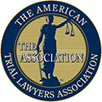Billions of dollars are spent every year on drug research – the results of which get published in medical journals and are relied upon by doctors and patients across the nation. However, most people don’t know that a great deal of what gets published is actually written by the drug industry itself or by doctors, scientists and researchers who are paid by drug companies. That begs the question – can drug industry research really be unbiased?
Case In Point: Avandia
A recent article in The Washington Post addressed that question and highlighted Avandia, GlaxoSmithKline’s (GSK) controversial diabetes drug. Numerous studies were published in medical journals touting the effectiveness and safety of Avandia – including a 17-page paper published in the New England Journal of Medicine (NEJM) in 2006. As a result of that article, Avandia sales skyrocketed and GSK made billions of dollars.
The problem? The NEJM paper was written by GSK. According to the Post, eleven of the authors who wrote that paper were paid to do so (four were actual GSK employees with company stock and seven were academic experts who received consulting fees or grants from the pharmaceutical giant).
It was only after the U.S. Food & Drug Administration began receiving reports of patients suffering serious Avandia side effects such as heart attacks and death that the results of the study were called into question. Hundreds of thousands of patients – as well as their doctors – relied on that information in vain. At the end of the day, the FDA associated 83,000 heart attacks and deaths with Avandia use. The company has reportedly settled well over 10,000 Avandia injury lawsuits and thousands more are still pending.
Who Can You Trust?
That’s a loaded question for sure. Perhaps the real question is who should you be able to trust? Most people think that any scientific research published in respected medical journals can be trusted. Unfortunately, that’s just not the case. Even respected journals such as the NEJM publish materials submitted by pharmaceutical companies.
According to the Post, the NEJM published 73 articles on new FDA approved drugs over a one-year period. Pharmaceutical companies directly funded 60 of those articles. Fifty were co-written by drug company employees and 37 had a lead author who had previously received consultant pay, grants or speaker fees from the drug maker.
The pharmaceutical industry spends over $40 billion a year on research (and promotion) of drugs used by millions of Americans every day. Unfortunately, the bottom line for the industry is profits for shareholders – not the users who may be at increased risk of drug injury or death.
If you’ve been injured by Avandia or any other drug, please contact The Driscoll Firm, P.C. We will fight for your rights.







